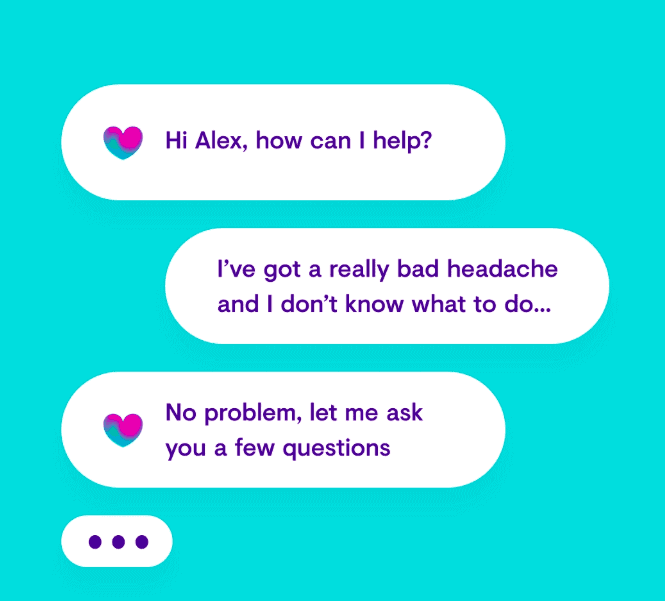Artificial intelligence has proven to be successful in a variety of industries and still sparks excitement among businesses. Even though there are numerous examples of AI bringing benefits to many sectors, it seems like it’s still feared in healthcare. On one hand, there’s a fear of machine error and data privacy concerns, on the other – would patients be willing to see AI as an element of healthcare services? Of course, we’re not going extreme like with Baymax – this cute inflatable robot would detect vital stats and treat any ailment. I can imagine not everyone would fancy being accompanied by a robot-like that, but we’re not there yet. So what are some of the ways to use artificial intelligence in healthcare?
Administrative workflow automation
Doctors, nurses, and other care providers all have to spend a lot of time doing paperwork and dealing with administrative tasks that burn a lot of their valuable time. AI can assist them in these arduous tasks: an example of such support may be computer-assisted documentation. A company called Nuance developed a solution that helps physicians to capture all necessary information about the patients. Their Computer-Assisted Physician Documentation provides real-time clinical documentation guidance and ensures consistent recommendations.
Solutions such as voice-to-text transcriptions can save a lot of doctors’ time to help order tests, prescribe medications or make notes.
What’s more, with the help of AI, physicians can access processed patient history. This means that they wouldn’t have to go through the entire history to make sense of it, they could access well-organized patient information whenever they need it.
Read also: Examples of Responsible AI
Virtual nurses
Have you ever been stuck in the waiting room full of people trying to see your doctor? See, it’s not a secret that some hospital consultations are not emergency situations. People feel bad, they’re worried or scared, they want to know what’s going on. This is absolutely understandable but it also puts a lot of pressure on the doctors and nurses to help even more patients and solve problems even faster. Virtual nurses can reduce the number of unnecessary hospital visits, which is beneficial to both the doctors and the patients. This is a perfect example of how AI implementation can be leveraged in patient engagement solutions to increase patient satisfaction from medical services.
According to Syneos Health Communications, 64 percent of patients reported they would be comfortable with AI virtual nurse assistants, listing 24/7 access to answers and support, round-the-clock monitoring, and the ability to get quick answers to questions about medications as some of the benefits. Since virtual assistants are available 24/7, they can help whenever they are needed and provide instant answers.
The Babylon app uses AI in an interactive symptoms checker to provide medical care. The system asks questions and analyzes the answers, it assesses known symptoms and risk factors to provide informed, up-to-date medical information.

Robot-assisted surgery
AI-assisted robotic surgery has an estimated value of 40 billion dollars. No wonder, actually, it is really impressive as technology. Robotic surgeries are considered minimally invasive as they allow replacing large incisions with a series of quarter-inch incisions and utilize miniaturized surgical instruments. In a robotic procedure, the pre-op medical records are integrated with real-time operating metrics to improve the outcomes. This technique allows for better physician precision and can lead to a 21% reduction in the length of patient’s post-operation hospital stay.
The da Vinci, considered the world’s most advanced surgical robot, lets the doctors perform a variety of procedures with greater flexibility and control than the conventional approaches can offer. The da Vinci has robotic limbs with surgical instruments attached to them and provides a high-definition, magnified, 3D view of the surgical site. The surgeon controls the machine from a computer console near the operating table.
Diagnosis aid
Even though AI diagnosis isn’t extremely advanced and needs to be developed further, there are some impressive cases already. In 2018, a story of AI recognizing skin cancer better than experienced doctors made the news. In a study published in a leading cancer journal, researchers from the USA, Germany, and France trained a deep learning convolutional neural network (CNN) to identify skin cancer. To achieve that, they fed the network with more than 100 thousand images of malignant melanoma, as well as benign moles. The researchers compared the performance of AI to that of 58 international dermatologists and found that AI made fewer mistakes: it missed fewer melanomas and misdiagnosed moles as malignant less often.
Read also: What are the most important benefits of AI in healthcare
Health monitoring
Wearable health and fitness monitors are more and more popular, and there’s also a whole variety of apps tracking our daily activities. Right now, these solutions provide us with insight into how much we move, how many kilometers we walk, how fast we run, how many calories we burn, what our heart rate is. All this data is extremely valuable and it can be shared with the doctor to provide alerts in case of health issues or up-to-date information about the patient’s habits. Monitoring your health using solutions that gather and analyze data is much easier than trying to figure out how many minutes a day, on average, you move and when you last went for a jog.
Is artificial intelligence in healthcare going to gain popularity?
For sure! With the rapid development of new technologies, it’s certain that new solutions will emerge, while the existing ones will get improved. As you can see, AI in healthcare is more than just analyzing medical records, it also presents opportunities across many areas, including diagnostics, virtual assistants, wellness management, and wearables. AI can sense, understand, and perform actions, so it can support people in both administrative and clinical functions.
The importance of consumer health is an issue that huge companies like Apple are more and more interested in. In an interview with CNBC, Tim Cook, the CEO of Apple, said that Apple has been investing in health and wellness in recent years. With solutions like the electrocardiogram-equipped Apple Watch, they aim to empower individuals to manage their health. While Apple is not associated with the healthcare sector now, Tim Cook says:
If you zoom out into the future, and you look back, and you ask the question, ‘What was Apple’s greatest contribution to mankind?’ It will be about health.
With the introduction of Apple Watch and Apple Health Records, the company has officially entered the healthcare space, allowing users to track their health data, aggregate their health records, and visualize the records. Health and wellness solutions are constantly developing, and they offer more benefits to patients and institutions. We’ll surely witness changes in healthcare in the upcoming years and the introduction of AI may bring some astounding results.

